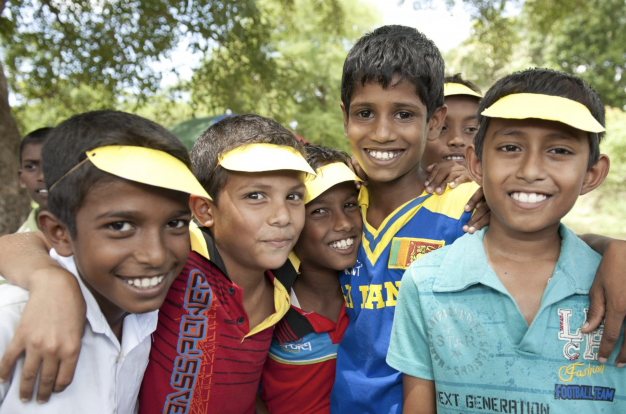
UNICEF at 75: What are the key opportunities for the world’s children post-pandemic?
Renewing global confidence in vaccines, addressing challenges to youth mental health and wellbeing, fighting discrimination, tackling climate change, and bridging the digital divide are the biggest opportunities for children that the COVID-19 pandemic has presented the international community, says UNICEF’s Executive Director Henrietta Fore.
In her annual open letter that also marks UNICEF’s 75th anniversary, Fore outlines how, while the world continues its fight against the global pandemic, we need to seize the key opportunities it presents to reimagine a world more fit for children.
“As we kick off UNICEF’s 75th anniversary, we are reminded that this organization was created in the midst of another historic crisis in the aftermath of World War II,” writes Fore. “Back then, it would have been easy to be overwhelmed by the scale of the problems facing children in a war-ravaged world. But we reimagined what was possible. We built new health and welfare systems around the world. We defeated smallpox and wild polio. We built the United Nations. History is calling upon us once again.”
Vaccines
On vaccines, Fore warns that vaccine hesitancy will have a profound effect on our ability to overcome COVID-19. Even while we work with governments, partners and donors to help procure, transport and deliver vaccines around the world, Fore writes, we must also build confidence in the vaccines in order for the public to accept them. “Without trust, vaccines are just expensive vials in a doctor’s cabinet.”
Mental health
On mental health, Fore says that COVID-19 has added to a worrying rise in mental health disorders among children and young people, and urges the international community to do more. “Countries need to give this issue the investment it deserves, dramatically expand mental health services and support for young people in communities and schools, and build on parenting programmes to ensure that children from vulnerable families get the support and protection they need at home,” she writes.
Digital divide
On bridging the digital divide, Fore points out how global lockdowns have exposed the inherent inequity of the digital divide. During the peak of school closures in 2020, about 30 per cent of the world’s schoolchildren were unable to access remote learning – some of the same children who are already unlikely to have access to quality education. The letter calls for reimagining education and bridging the digital divide so that digital tools can be leveraged to reimagine education and leapfrog into the future.
Finally, the letter points out how critical this moment of opportunity is. “The international community must support an inclusive recovery that prioritizes investments for children,” Fore writes. “This year, as UNICEF celebrates 75 years of reimagining the future for every child, let’s gather behind children and young people with a new spirit of urgency, as we create opportunities, ignite their dreams, and support them across every part of their lives.”
Click here to read the full letter.
Click here for more about UNICEF’s history.




